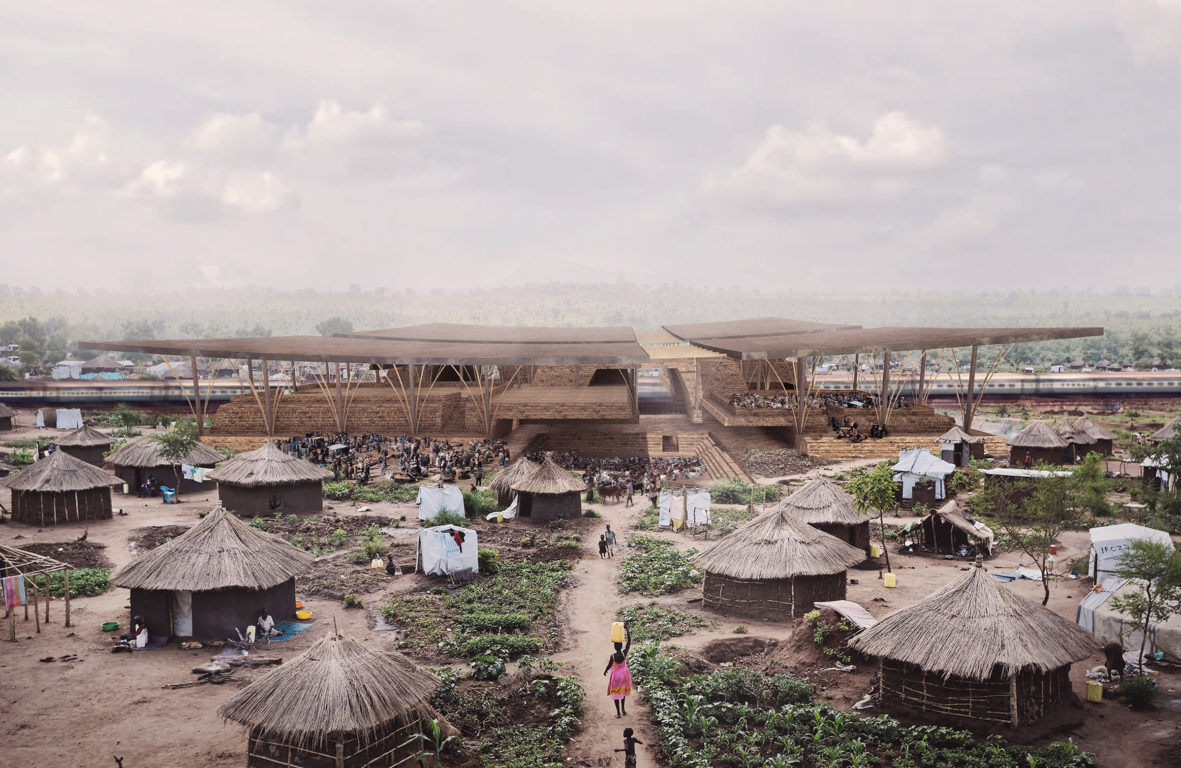Project Title: Africa Israel – Railway Line as a Response to Neo-colonialism
Location: Juba, Sudan and Be’er Sheva, Israel
Author: Matan Gal

With the end of World War II and the dissolution of the colonial occupation, there was a transitional period in which the empires withdrew from the African continent, and gradually the African countries gained independence. In the same historical narrative, the Israeli Declaration of Independence (1948) created a common ideological denominator with the African nations, [with both countries] rooted in democracy, socialism, labour and the spirit of nationalism.
The frequent upheavals that plagued African countries – including rule exchanges, invasion of capitalist mechanisms in a new trend of neo-colonialism, and the rise of radical Islam – have directly affected the nature of their relations with Israel, with relations often being replaced by suspicion and hostility. Despite the crisis of the African-Israeli relations and complete diplomatic detachment, trade relations between Israel and many African countries continued to exist, particularly in the field of infrastructure.
Political stability allowed a renewed positive connection between Israel and African countries. Israeli presence on the ‘Black Continent’, which is present in the face of crony-capitalism, is a source of controversy over the extent of the Israeli intervention and influence onto the African continent. The lack of adequate road and railway systems in Africa is considered to be the continent’s worst affliction, leaving many areas isolated, which severely impedes on aid missions.
‘Africa Israel: Railway Line as a Response to Neo-Colonialism’ project proposes a railway-line stretching from Israel to Uganda, based on the Nile River.
The establishment of this railway type is creating an independent platform to conduct open and transparent trade relations accessible to a broad segment of the population and markets. It will be used as a lever for development and entrepreneurship in the individual and collective hierarchy in parallel. The added value of building this type of railway system is in the ability to shatter the continent into fragments in specific factors, inflate local virtues and weave Israel into this rich fabric. In a precise planning of each train-station, a generic structure is implanted into a specific territory compartment. From here, the values of each station will derive from local needs, cultural tradition, heritage, and material formations. The station is an infrastructural wedge: internally used as a scheduled platform for occurrence, and externally as a spatial anchor that frames the landscape and cultural ambience.
Text provided by the author(s).
